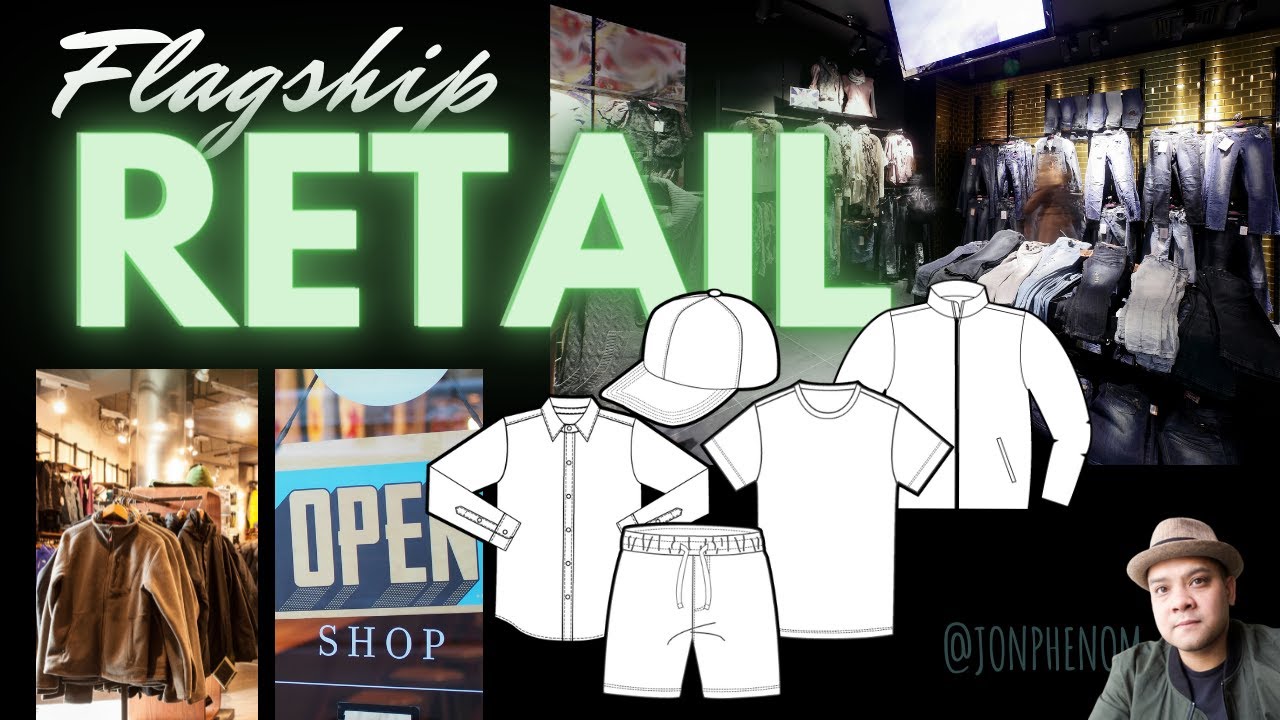Choosing the right careerpath is a significant decision that can shape our professional and personal lives. When exploring different options, working in clothing, shoe, or accessory stores often emerges as an appealing choice. This article aims to examine whether is clothing/shoe/accessory stores a good career path.
What Is A Clothing/Shoe/Accessories Store?
A clothing, shoe, or accessories store is a retail establishment that specializes in selling clothing items, footwear, and various fashion accessories. These stores offer a wide range of products, including but not limited to:
- Clothing- This includes garments for men, women, and children, such as tops, bottoms, dresses, suits, outerwear, activewear, and more. It encompasses various styles, sizes, and fashion trends.
- Shoes- Shoe stores offer a variety of footwear options, including casual shoes, formal shoes, athletic shoes, boots, sandals, and specialized footwear for different activities or occasions.
- Accessories- These stores typically provide a selection of fashion accessories to complement outfits, including jewelry, belts, scarves, hats, handbags, wallets, sunglasses, watches, and other items that enhance personal style.
Clothing, shoe, and accessory stores can be standalone establishments or part of larger retail chains. They aim to cater to the fashion preferences and needs of their target customers by offering a diverse range of products. In addition to selling items, these stores often provide customer service, assistance with outfit selection, and advice on styling and fashion trends.
Reasons To Pursue A Career In The Clothing/Shoe/Accessories Store Industry
There are several compelling reasons to pursue a career in the clothing, shoe, and accessories store industry. Here are a few:
- Passion for Fashion -If you have a genuine interest in fashion, working in this industry allows you to immerse yourself in the latest trends, styles, and designs. It provides an opportunity to express your creativity and stay connected to the ever-evolving world of fashion.
- Customer Interaction -A career in this industry involves direct interaction with customers. You have the chance to assist and engage with people, helping them find the perfect outfit or accessory. Building relationships with customers and providing excellent service can be highly rewarding.
- Personal Growth and Skill Development -Working in clothing, shoe, or accessories stores offers opportunities for personal and professional growth. You can enhance skills such as customer service, communication, sales, merchandising, and inventory management. These skills are transferable and can benefit you in various other fields.
- Varied Work Environment -The retail industry, especially in clothing, shoe, or accessory stores, offers a dynamic and fast-paced work environment. Each day brings new challenges, such as visual merchandising, inventory management, and interacting with diverse customers. The variety prevents monotony and keeps the job interesting.
- Career Advancement -The clothing, shoe, and accessories store industry provides the potential for career advancement. Starting at an entry-level position, you can progress to become a supervisor, store manager, or regional manager, or even pursue roles in buying, merchandising, or brand management. With dedication and a strong work ethic, you can climb the career ladder and explore various opportunities within the industry.
- Opportunity for Entrepreneurship -If you have an entrepreneurial spirit, the clothing, shoe, and accessories store industry offers the potential to start your own business. You can establish a boutique, an online store, or even launch your own fashion brand. This industry allows for creativity and the chance to carve your own path.
- Connection to Fashion Community -Working in this industry provides opportunities to connect with others who share your passion for fashion. You can network with designers, suppliers, industry professionals, and fellow fashion enthusiasts. These connections can lead to collaborations, partnerships, and opportunities for growth.
22 Highest Paying Jobs In Clothing/Shoe/Accessory Stores

Best Paying Jobs In Clothing/Shoe/Accessory Stores.
While the clothing, shoe, and accessory store industry is known for providing a range of job opportunities, it is important to note that the highest-paying jobs in this field are often found at the management and executive levels.
- Retail District Manager -Oversees multiple stores in a specific geographic region, ensuring consistent operations and maximizing sales. Salary Range: $80,000 - $150,000+ per year.
- Regional Sales Manager -Manages sales teams and strategies for a specific region, driving revenue growth. Salary Range: $70,000 - $120,000+ per year.
- Visual Merchandising Director -Develops and implements visual merchandising strategies to create appealing store displays and enhance the brand image. Salary Range: $70,000 - $120,000+ per year.
- Fashion Buyer -Selects and purchases merchandise for the store, analyzing market trends and negotiating with suppliers. Salary Range: $60,000 - $100,000+ per year.
- E-commerce Manager -Oversees the online sales operations, manages the website, and develops digital marketing strategies. Salary Range: $60,000 - $100,000+ per year.
- Store Operations Manager -Ensures smooth operations and efficiency within the store, managing staff, inventory, and customer service. Salary Range: $50,000 - $90,000+ per year.
- Merchandise Planner -Analyzes sales data and market trends to plan inventory levels, optimize stock, and maximize profitability. Salary Range: $50,000 - $90,000+ per year.
- Retail Store Manager -Manages all aspects of a retail store, including sales, staff, customer service, and inventory management. Salary Range: $45,000 - $80,000+ per year.
- Product Development Manager -Oversees the development of new clothing, shoe, or accessory products, working closely with designers and suppliers. Salary Range: $45,000 - $80,000+ per year.
- Marketing Manager -Develops and implements marketing strategies to promote the store and drive customer engagement. Salary Range: $45,000 - $80,000+ per year.
- Sales Trainer -Provides training and development programs for sales teams, focusing on product knowledge and sales techniques. Salary Range: $40,000 - $70,000+ per year.
- Wholesale Sales Representative -Builds and maintains relationships with wholesale clients, selling products to other retailers or businesses. Salary Range: $40,000 - $70,000+ per year.
- Inventory Control Manager -Manages inventory levels, monitors stock movement, and implements inventory control strategies to optimize efficiency. Salary Range: $40,000 - $70,000+ per year.
- Brand Manager -Develops and manages the brand image and marketing strategies for the clothing, shoe, or accessory brand. Salary Range: $40,000 - $70,000+ per year.
- Supply Chain Manager -Oversees the supply chain processes, ensuring timely delivery of products and efficient logistics operations. Salary Range: $40,000 - $70,000+ per year.
- Creative Director - Leads the creative direction for marketing campaigns, branding, and visual identity. Salary Range: $40,000 - $70,000+ per year.
- Senior Fashion Designer -Designs and develops clothing, shoes, or accessories, creating original concepts and overseeing production. Salary Range: $40,000 - $70,000+ per year.
- Retail Loss Prevention Manager -Implements loss prevention strategies and policies to reduce theft and ensure a safe shopping environment. Salary Range: $35,000 - $60,000+ per year.
- Retail Account Manager -Manages relationships with key retail accounts, ensuring customer satisfaction and driving sales. Salary Range: $35,000 - $60,000+ per year.
- Store Designer -Designs the layout and aesthetics of store interiors, creating an attractive and functional shopping environment. Salary Range: $35,000 - $60,000+ per year.
- Visual Merchandising Manager -Oversees the visual merchandising team, implementing strategies to enhance product presentation and drive sales. Salary Range: $35,000 - $60,000+ per year.
- Fashion Stylist -Assists customers in selecting clothing, shoes, or accessories, providing fashion advice, and creating stylish looks. Salary Range: $30,000 - $50,000+ per year.
Certificate Requirements For A Career In Clothing/Shoe/Accessories Store
While a specific certificate may not be universally required for a career in the clothing, shoe, and accessories store industry, there are certain certificates and qualifications that can enhance your knowledge, skills, and marketability in the field. Here are some certificate programs and qualifications that can be beneficial:
- Fashion Retailing Certificate -This certificate program focuses on retail management, buying and merchandising, customer service, and fashion industry fundamentals.
- Visual Merchandising Certificate -This program provides training in creating appealing store displays, understanding consumer behavior, and utilizing visual merchandising techniques to enhance sales.
- Fashion Styling Certificate -This certificate program equips individuals with the skills needed to work as a fashion stylist, including fashion trend analysis, personal shopping, wardrobe consultation, and styling techniques.
- Sales and Customer Service Certificate -This program emphasizes sales techniques, customer relationship management, effective communication, and providing exceptional customer service.
- BusinessManagement Certificate -A certificate in business management can provide foundational knowledge in areas such as marketing, finance, operations, and strategic planning, which are relevant to managing a clothing, shoe, or accessory store.
- Product Knowledge Certification - Many brands and manufacturers offer product knowledge certifications specific to their clothing, shoe, or accessory lines. These certifications can enhance your understanding of their products and improve your sales abilities.
It's important to note that while these certificates can supplement your skills and knowledge, practical experience and on-the-job training are also valuable in the clothing, shoe, and accessories store industry. Building a strong portfolio of work, gaining relevant retail experience, and staying updated with industry trends and developments are equally important for career advancement in this field.
Additionally, it is always beneficial to research and consider any regional or country-specific certifications or qualifications that may be relevant to your desired career path in the clothing, shoe, and accessories store industry, as requirements can vary depending on location and employer preferences.
What Do People Working In Clothing/Shoe/Accessory Stores Do?

What Are Things You Need to Know When Working in a Clothing Store? : Career Advice & More
People working in clothing, shoe, and accessory stores perform a variety of tasks and responsibilities to ensure the smooth operation of the store and provide excellent customer service. Here are some common duties and roles within this industry:
- Customer Assistance -Assisting customers in finding products, providing guidance on sizing, styles, and trends, and offering personalized recommendations.
- Sales and Upselling -Engaging with customers to promote and sell products, utilizing sales techniques to increase sales revenue, and suggesting additional items to enhance the customer's shopping experience.
- Visual Merchandising -Creating visually appealing displays to showcase products, arranging merchandise in an attractive manner, and ensuring the store's aesthetics align with the brand image.
- Inventory Management -Receiving and organizing incoming merchandise, maintaining stock levels, restocking shelves, and ensuring accurate inventory records.
- Cashiering and Checkout -Operating cash registers, processing transactions, handling payments, and providing accurate and efficient checkout service.
- Store Operations -Opening and closing the store, maintaining cleanliness and organization, monitoring security and loss prevention measures, and ensuring compliance with company policies and procedures.
- Fitting Room Assistance -Assisting customers in fitting rooms, providing feedback on fit and style, retrieving additional sizes or items, and maintaining the cleanliness and organization of fitting room areas.
- Product Knowledge -Staying informed about the latest fashion trends, product features, and brand information to effectively communicate with customers and provide accurate information.
- Customer Service -Resolving customer inquiries, concerns, and complaints in a professional and helpful manner, ensuring a positive and satisfactory shopping experience.
- Team Collaboration -Collaborating with coworkers and management to achieve sales targets, participate in team meetings, and contribute to a positive work environment.
- Product Returns and Exchanges -Processing returns, exchanges, and refunds according to store policies, ensuring customer satisfaction and efficient handling of transactions.
- Visual and Stock Replenishment -Replenishing and rearranging merchandise on the sales floor, maintaining visual standards, and ensuring products are well-stocked and readily available for customers.
Pro And Cons Working In Clothing/Shoe/Accessory Stores

Pros & Cons of Retail Flagship shop | for Clothing Brands
Working in clothing, shoe, and accessory stores comes with its own set of pros and cons. Here are some of the advantages and disadvantages:
Pros
- Fashion and Style Exposure -Being surrounded by the latest fashion trends and styles allows you to stay updated and develop a strong sense of fashion.
- Customer Interaction - Working directly with customers provides opportunities for personal connection, assisting them in finding the right products, and building relationships.
- Transferable Skills -Retail jobs offer valuable skills such as communication, customer service, teamwork, problem-solving, and sales techniques that can be applied in various industries.
- Flexible Schedules -Many clothing, shoe, and accessory stores offer flexible work schedules, making it easier to balance work with personal commitments or pursue other interests.
- Employee Discounts -Working in the industry often comes with employee discounts or incentives, allowing you to enjoy discounted or free products.
Cons
- Irregular Working Hours -Retail schedules can include weekends, evenings, and holidays, which may disrupt work-life balance and limit personal time.
- High-Stress Environment -Dealing with demanding customers, meeting sales targets, and managing busy periods can create a high-pressure work environment.
- Low Wages -Entry-level positions in clothing, shoe, and accessory stores often offer modest wages, with limited earning potential.
- Job Insecurity -Retail can be influenced by economic conditions, changing consumer behavior, and the rise of online shopping, potentially leading to job instability.
- Physical Demands -Roles in retail often involve standing for long hours, lifting and carrying items, and being on your feet throughout the workday, which can be physically demanding.
It's important to note that individual experiences may vary, and not all pros and cons may apply to every situation. Factors such as company culture, work environment, and personal preferences can significantly impact the overall experience of working in clothing, shoe, and accessory stores.
People Also Ask
What Skills Are Important For A Career In The Clothing, Shoe, Or Accessory Industry?
Important skills for a career in this industry include strong communication and customer service abilities, knowledge of fashion trends, attention to detail, salesmanship, organizational skills, and the ability to work well in a team.
What Education Or Training Is Required For A Career In The Clothing, Shoe, Or Accessory Industry?
While a specific educational background may not be mandatory, many employers prefer candidates with a high school diploma or equivalent. Relevant courses in fashion, merchandising, marketing, or business can provide a competitive edge. On-the-job training is common in this industry.
What Are The Job Prospects Like In The Clothing, Shoe, Or Accessory Industry?
Job prospects in this industry can vary depending on factors such as location, economic conditions, and consumer demand. While there may be entry-level positions available, career advancement opportunities exist for those who demonstrate strong performance, skills, and a deep understanding of the industry.
How Can One Gain Experience In The Clothing, Shoe, Or Accessory Industry?
Gaining experience can be achieved through internships, part-time jobs, or volunteering in retail or fashion-related positions. This allows individuals to develop practical skills, understand the industry's dynamics, and build a professional network.
Are There Opportunities For Entrepreneurship In The Clothing, Shoe, Or Accessory Industry?
There are opportunities for entrepreneurship in this industry. Many successful brands and retailers started as small businesses. With a strong business plan, market research, creativity, and a unique value proposition, individuals can establish their own clothing, shoe, or accessory store or even launch their own fashion brand.
Conclusion
Pursuing a career in clothing, shoe, or accessory stores can be a viable and fulfilling option for individuals with a passion for fashion, customer service, and personal growth. The industry offers opportunities to stay connected with the latest trends, develop valuable skills, and advance professionally. However, it is essential to be mindful of the irregular working hours, high-stress environment, limited earning potential, and job insecurity that may come with this career choice.
Ultimately, by carefully weighing the pros and cons, individuals can determine whether this path aligns with their aspirations and brings them joy and satisfaction in their professional journey.
